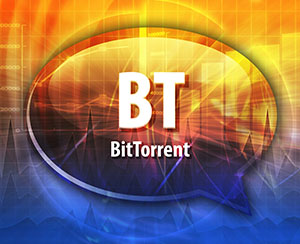When is an Internet Service Provider Responsible for Bit Torrent Piracy?
Get Legal Help Today
Find the right lawyer for your legal issue.
Secured with SHA-256 Encryption
Mary Martin
Published Legal Expert
Mary Martin has been a legal writer and editor for over 20 years, responsible for ensuring that content is straightforward, correct, and helpful for the consumer. In addition, she worked on writing monthly newsletter columns for media, lawyers, and consumers. Ms. Martin also has experience with internal staff and HR operations. Mary was employed for almost 30 years by the nationwide legal publi...
Published Legal Expert
UPDATED: Jun 29, 2022
It’s all about you. We want to help you make the right legal decisions.
We strive to help you make confident insurance and legal decisions. Finding trusted and reliable insurance quotes and legal advice should be easy. This doesn’t influence our content. Our opinions are our own.
Editorial Guidelines: We are a free online resource for anyone interested in learning more about legal topics and insurance. Our goal is to be an objective, third-party resource for everything legal and insurance related. We update our site regularly, and all content is reviewed by experts.
UPDATED: Jun 29, 2022
It’s all about you. We want to help you make the right legal decisions.
We strive to help you make confident insurance and legal decisions. Finding trusted and reliable insurance quotes and legal advice should be easy. This doesn’t influence our content. Our opinions are our own.
On This Page
 As I’ve discussed in previous blogs, the Digital Millennium Copyright Act (DMCA) is one of the most important governing laws of the Internet. It protects internet service providers (ISPs), websites, etc. from liability for copyright infringement by their users — as long as the ISPs and websites follow the rules.
As I’ve discussed in previous blogs, the Digital Millennium Copyright Act (DMCA) is one of the most important governing laws of the Internet. It protects internet service providers (ISPs), websites, etc. from liability for copyright infringement by their users — as long as the ISPs and websites follow the rules.
A recent case out of Virginia — BMG Rights Mgmt. (US) LLC, v. Cox Commc’n, Inc. — illustrates how this works.
Peer-to-Peer
As the court stated, “Peer-to-peer file sharing emerged in the late 1990s, most famously with Napster. In 2001, the music industry successfully enjoined Napster… but technology continued to evolve and in its place came programs like KaZaA, Morpheus, Grokster, eDonkey, and iMesh.”
… A suit against Grokster and StreamCast, two peer-to-peer software distributors, reached the Supreme Court in 2005, … and resulted in Grokster closing its doors and StreamCast being permanently enjoined.
However, online piracy has continued to grow. As the court noted,
Today, the most popular vehicle is BitTorrent, a protocol that allows individual computers, called “peers,” to communicate and transfer information directly using an internet connection.
However, it should be noted that not all acts of torrenting, including those torrenting with a VPN, are illegal.
Going after individual uploaders and downloaders is obviously difficult and expensive for the owners of pirated works. Efforts to do so have often been ineffective and led to negative publicity (especially when sympathetic or seemingly innocent people were targeted).
So intellectual property rights-holders have switched their focus to those who “provide the means to infringe,” including fire-sharing services, Internet auction sites (such as eBay), search engines, and credit card companies.
Cox Communications
Cox Communications is an internet service provider. It provides about 4.5 million customers in the US with a connection to the Internet.
Cox’s acceptable use policy gives it the right to suspend or terminate customers who
use the Service to post, copy, transmit, or disseminate any content that infringes the patents, copyrights, trade secrets, trademark, moral rights, or proprietary rights of any party.
BMG
As I discussed in this blog, BMG, a major music publisher, sued Cox in 2014 for vicarious and contributory infringement of 1,397 musical copyrights.
A jury found that Cox was not liable for “vicarious” infringement but was liable for “contributory” infringement and awarded statutory damages of $25 million, as reported by the Hollywood Reporter.
Cox had claimed that it was protected by the DMCA’s “safe harbor” and wasn’t responsible for the acts of its customers.
However, Cox’s response to piracy was “essentially a thirteen-strike policy,” in the words of the court. Infringers got many “second chances” before a customer was even considered for termination.
As the court held,
Congress reserved its safe harbors for ISPs who hold up their end of the bargain. Unfortunately for Cox, the record was replete with evidence that foreclosed any assertion by Cox that it had reasonably implemented a repeat-infringer policy.
The lesson here is that it’s not enough to “go through the motions” when it comes to the DMCA. ISPs and others have to make a credible effort to combat piracy by their users — or pay the price.
Find the right lawyer for your legal issue.
Secured with SHA-256 Encryption
Mary Martin
Published Legal Expert
Mary Martin has been a legal writer and editor for over 20 years, responsible for ensuring that content is straightforward, correct, and helpful for the consumer. In addition, she worked on writing monthly newsletter columns for media, lawyers, and consumers. Ms. Martin also has experience with internal staff and HR operations. Mary was employed for almost 30 years by the nationwide legal publi...
Published Legal Expert
Editorial Guidelines: We are a free online resource for anyone interested in learning more about legal topics and insurance. Our goal is to be an objective, third-party resource for everything legal and insurance related. We update our site regularly, and all content is reviewed by experts.
